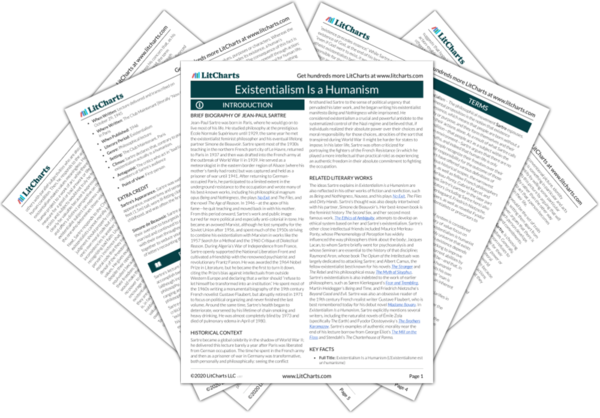Existentialism Quotes in Existentialism Is a Humanism
Existentialism Is a Humanism Quotes
Many will be surprised by what l have to say here about humanism. We shall attempt to discover in what sense we understand it. In any case, let us begin by saying that what we mean by “existentialism” is a doctrine that makes human life possible and also affirms that every truth and every action imply an environment and a human subjectivity.
It makes me wonder if what they are really annoyed about is not its pessimism, but rather its optimism. For when all is said and done, could it be that what frightens them about the doctrine that I shall try to present to you here is that it offers man the possibility of individual choice?
The truth is that of all doctrines, this is the least scandalous and the most austere: it is strictly intended for specialists and philosophers.
Dostoyevsky once wrote: “If God does not exist, everything is permissible.” This is the starting point of existentialism. Indeed, everything is permissible if God does not exist, and man is consequently abandoned, for he cannot find anything to rely on—neither within nor without.












